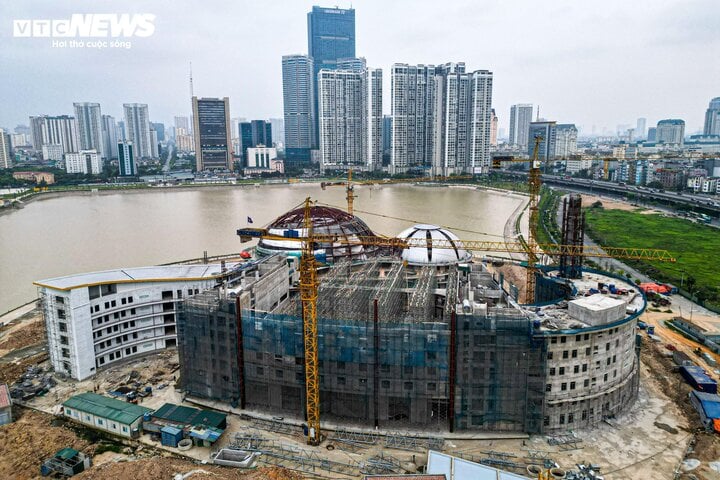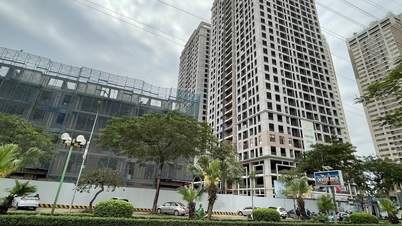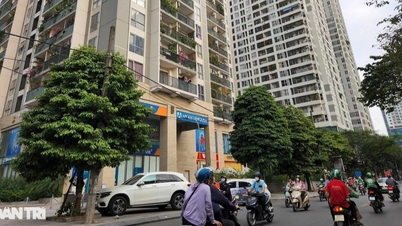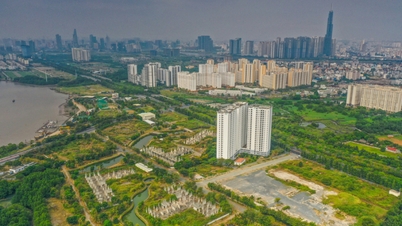According to Circular 31/2016/TT-BXD, apartment buildings are divided into 3 classes: class A, class B, class C based on 4 groups of criteria including: Planning - architecture; Technical equipment system; Services, social infrastructure and Quality, management, operation.
Recently, at the press conference of the Ministry of Construction , Deputy Minister Nguyen Van Sinh said that previously there were no regulations on which apartments were high-end, medium-sized and affordable. But now the price range has been determined, accordingly, below 25 million VND/m2 is low-income apartments, above 40 million VND/m2 is high-end apartments.
“ This level is set to classify projects, from which we will determine first, second, and third class apartments. Based on the classification, we will determine the selling price and regulate apartment service fees. This will create fairness and transparency ,” Deputy Minister Sinh emphasized.
Commenting on this issue, Associate Professor, Dr. Dinh Trong Thinh, Economic Expert, Senior Lecturer of the Academy of Finance, said that the selling price of apartments is not only determined by hard factors such as planning, architecture, technical infrastructure,... but is also influenced by soft factors such as location, demand, taste, and brand of the investor.

Experts say that apartment buildings should not be classified to determine selling prices.
" Price is only a very small factor in determining whether an apartment is high-end or low-end, so the price factor should not be used as a basis for determining the type of apartment. On the other hand, prices can also fluctuate continuously, so setting regulations on what type of apartment must be sold at what price is difficult to implement. The market should regulate prices ," Associate Professor, Dr. Dinh Trong Thinh commented.
A representative of a real estate company in Hanoi said that it is necessary to clarify who is supervising and appraising. And how to ensure that the appraisal and supervision work is objective, avoiding the situation of collusion and collaboration between the investor and the supervising unit to buy the apartment class.
“ The classification of apartments will easily lead to a mechanism of asking and giving and signs of negative lobbying. Many investors seize this opportunity to "buy" high-end labels to enjoy high-priced houses,” the business representative shared .
According to this business, if we use ranking to price apartments, investors will find ways to upgrade their projects, thereby "picking the pockets" of buyers. Not to mention when many negative cases arise such as apartments being ranked number one but the quality is not commensurate, then people will know who to complain to.
Sharing the same view, Lawyer Nguyen Danh Hue, Chairman of the Board of Directors of Hung Dong Law Firm, also said that classifying apartments as a basis for determining selling prices is difficult to implement, because apartment prices are affected by many factors and fluctuate continuously depending on space and time.
Mr. Nguyen Danh Hue said that in a market economy, prices should be decided by the market. State management agencies should not directly intervene in selling prices, but instead can intervene to regulate the market to develop in a healthier and more sustainable direction.
Similarly, according to Professor Dang Hung Vo, apartment classification should only be the basis for buyers and sellers to refer to and agree on the price and service price for apartment management and operation.
Specifically, according to Mr. Vo, the classification of construction works should only be used to evaluate the quality of the works according to general criteria. The value of the apartment is high or low, the price sold on the market is decided by the law of supply and demand (of course, apartments with high quality will be more popular with customers, so the selling price can be high).
Likewise, apartment services will be agreed upon by the service users and the providers. If residents in the apartment want many good services, they have to pay high fees and vice versa. The social trend is that people with money often want to live in high-end apartments, want to have the most services and amenities, and they agree to pay higher management fees.
Chau Anh
Source





































































































Comment (0)